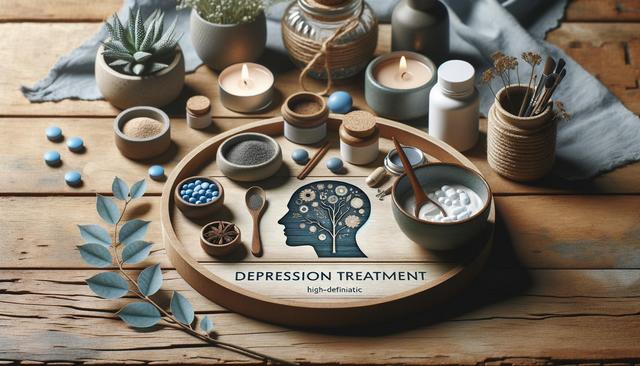Understanding Depression and Anxiety
Depression and anxiety are two of the most common mental health conditions affecting individuals worldwide. While they are distinct disorders, they often occur together and share several symptoms, including persistent sadness, fatigue, restlessness, and difficulty concentrating. Understanding the connection between these conditions is crucial in finding effective treatment strategies. Depression tends to involve a lack of motivation and feelings of hopelessness, while anxiety is often characterized by excessive worry and fear. Both can significantly impair quality of life and interfere with daily functioning.
The causes of depression and anxiety are complex and multifactorial. They may include a combination of genetic predisposition, brain chemistry, personality traits, and environmental stressors. Life events such as trauma, loss, or prolonged stress can also trigger or worsen symptoms. Recognizing the signs early and seeking professional support can help individuals manage these conditions before they escalate. A comprehensive treatment plan that addresses both mental and physical health is often the most effective approach.
Psychotherapy Approaches
Psychotherapy, also known as talk therapy, is a widely used and research-supported treatment for both depression and anxiety. There are several types of psychotherapy that have shown effectiveness in managing these conditions. One of the most well-regarded methods is Cognitive Behavioral Therapy (CBT), which helps individuals identify and change negative thought patterns and behaviors that contribute to their emotional distress. CBT is structured, goal-oriented, and often short-term, making it accessible and practical for many.
Other therapeutic approaches include:
- Interpersonal Therapy (IPT), which focuses on improving relationships and communication
- Dialectical Behavior Therapy (DBT), which combines behavioral techniques with mindfulness
- Psychodynamic Therapy, which explores unconscious thoughts and past experiences
Working with a licensed therapist can provide a safe space to explore emotions, develop coping strategies, and build resilience. Therapy may be conducted individually, in groups, or with family members, depending on the needs of the individual.
Medication and Medical Interventions
For some individuals, medication can be an integral part of treating depression and anxiety, especially when symptoms are moderate to severe. Antidepressants, such as selective serotonin reuptake inhibitors (SSRIs) and serotonin-norepinephrine reuptake inhibitors (SNRIs), are commonly prescribed to help regulate mood and reduce anxiety symptoms. These medications typically take a few weeks to become effective and may require ongoing use under medical supervision.
In cases where standard treatments are not effective, other medical interventions may be considered, including:
- Tricyclic antidepressants and monoamine oxidase inhibitors (MAOIs), which are older classes of medication
- Anti-anxiety medications, such as benzodiazepines, used for short-term relief
- Augmentation strategies with other medications, like mood stabilizers or antipsychotics
- Electroconvulsive Therapy (ECT), considered for severe or treatment-resistant depression
It is important to consult with a healthcare provider to evaluate the benefits and potential side effects of any medication. Personalized treatment planning, with regular follow-ups, ensures that the chosen approach aligns with the individual’s health profile and treatment goals.
Lifestyle Changes and Self-Care
In addition to professional treatments, lifestyle modifications can play a vital role in managing depression and anxiety. Daily habits and routines significantly influence mental well-being, and small, consistent changes can have a cumulative positive impact over time. Engaging in regular physical activity, for example, has been shown to reduce symptoms of both conditions by promoting the release of mood-enhancing neurotransmitters like endorphins and serotonin.
Other beneficial self-care practices include:
- Maintaining a consistent sleep schedule and ensuring adequate rest
- Eating a balanced and nutrient-rich diet
- Practicing mindfulness, meditation, or deep-breathing exercises
- Limiting alcohol and caffeine, which can exacerbate symptoms
- Setting realistic goals and breaking tasks into manageable steps
Support from friends and family, as well as participation in peer support groups, can also provide reassurance and reduce feelings of isolation. Encouraging self-compassion and patience throughout the recovery process is essential for long-term improvement.
Alternative and Complementary Therapies
Beyond conventional treatments, many individuals explore alternative and complementary therapies to support their mental health. While these methods should not replace professional care, they can enhance overall well-being and resilience when used appropriately. Some alternative options that have gained recognition include:
- Yoga and tai chi, which combine physical movement with mindfulness and relaxation
- Acupuncture, which may help regulate the nervous system and reduce anxiety
- Herbal supplements, such as St. John’s Wort or valerian root, though these should be used cautiously and under medical supervision
- Art and music therapy, which provide creative outlets for emotional expression
Mind-body practices emphasize the connection between mental and physical states, encouraging individuals to become more attuned to their internal experiences. While not all alternative therapies are backed by strong scientific evidence, many find them helpful as part of a holistic approach to mental wellness. Consulting with healthcare professionals before starting any new therapy ensures safety and compatibility with existing treatments.
Conclusion: Navigating the Path to Recovery
Treating depression and anxiety requires a multifaceted and personalized approach. From psychotherapy and medication to lifestyle adjustments and complementary therapies, there are numerous avenues to explore. What works for one person may not work for another, and finding the right combination often involves some trial and error. Collaborating with mental health professionals and maintaining open communication about symptoms and progress can greatly enhance treatment outcomes.
Whether you or someone you care about is experiencing symptoms of depression or anxiety, it’s important to know that help is available. Early intervention, consistent support, and a proactive mindset can pave the way to meaningful recovery and improved quality of life. Addressing both the emotional and physical aspects of these conditions ensures a more comprehensive and sustainable path forward.




Leave a Reply